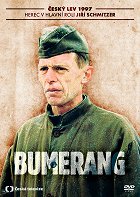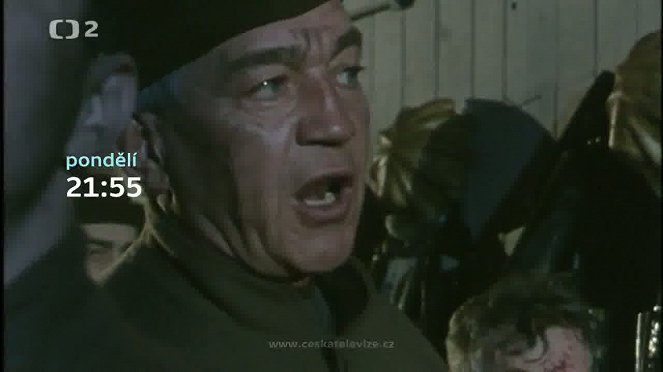Regie:
Hynek BočanDrehbuch:
Jiří StránskýKamera:
Ivan ŠlapetaMusik:
Jiří StivínBesetzung:
Jiří Schmitzer, Vladimír Dlouhý, Karel Heřmánek, Miroslav Noga, Leoš Suchařípa, Milan Šteindler, Jan Schmid, Vlastimil Venclík, Břetislav Rychlík (mehr)Inhalte(1)
Hynek Bočan's raw psychological drama deals with the Communist fifties and the dissolution of the cult of Stalin. The plot unfolds at a work camp designated for political prisoners. Paradoxically, after the change in the political climate, one of the facility's former high functionaries comes to discover the relativity of the term justice. (Verleiher-Text)
(mehr)Kritiken (2)
A thematically very strong film that, like few others, attempts to come to terms with the oppressive legacy of the 1950s, when one hundred thousand people found themselves in camps and prisons, a burden that mostly marked them for life. The film is dominated by Jiří Schmitzer's convincing performance as the main protagonist. He managed to convey his own experiences from prison, where he ended up after a tragic car accident. His performance is completely authentic and rightfully earned him the Czech Lion award. This drama is interesting for its cast, with several actors appearing in atypical roles (Milan Šteindler, Jiří Krampol, and others), but the average screenplay and direction undermine the overall impression. Overall impression: 75%.
()
Einer der besten Filme der neunziger Jahre, und ich habe ihn erst 2015 gesehen. Trotzdem bin ich mir fast sicher, dass ich ihn 1996 nicht in so vielen Zusammenhängen wahrgenommen hätte wie jetzt. Jiří Schmitzer erbringt die Leistung seines Lebens und hat seinen verdientesten Löwen erhalten - die Szene mit dem durchgeschmuggelten Essen bleibt für mich unvergesslich. Es hat mich fasziniert, dass im Film mehrere ausgesprochene Komödienschauspieler auftauchen (Šteindler, Krampol, Vladyka), und der Film verliert dadurch nicht, im Gegenteil. Und ich muss mich auch zur musikalischen Seite äußern - Beethovens 7. Symphonie klingt mir immer noch in den Ohren. Nur hatte ich sie filmisch nur mit dem Streifen Das bessere Leben in Verbindung gebracht, und das ein diametral anderer Film. Bravo, Herr Bočan und Herr Stránský.
()

